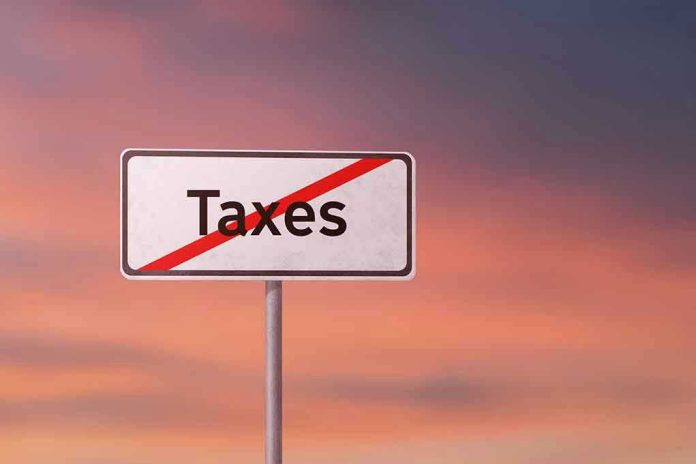
Ohio’s push to radically slash property taxes is sending shockwaves through local governments and school districts, leaving everyday Ohioans asking: will this “flat tax revolution” finally bring relief, or just more chaos to Main Street?
At a Glance
- Ohio’s Republican-led legislature is advancing aggressive property tax reforms—overriding a key veto from Governor DeWine.
- Governor DeWine has formed a working group to find a “balanced” approach, but critics call it a stall tactic.
- Local governments and schools warn of dire funding cuts, while taxpayers demand relief from out-of-control bills.
- Grassroots movements are collecting signatures to abolish property taxes altogether in the 2026 election.
Ohio’s Flat Tax Revolution Threatens the Status Quo
The Buckeye State is finally tackling the property tax monster that has haunted homeowners for decades. With a Republican supermajority in Columbus and a new sense of urgency following years of taxpayer frustration, Ohio is moving toward one of the lowest effective property tax rates in the country. The legislature’s latest override of Governor DeWine’s veto puts the state on a collision course with local governments and school boards, who are already howling about lost revenue.
This is not just another tweak around the edges. The reforms restrict the ability of local governments and school boards to hit property owners with endless new levies. For families crushed by rising tax bills, it’s long-awaited relief. But for the big-government crowd—those folks who never saw a tax hike they didn’t like—it’s a five-alarm fire. The battle lines are drawn, and neither side is backing down.
Political Infighting and Working Group Gridlock
Governor Mike DeWine, ever the moderate, is desperately trying to play both sides. He vetoed four major property tax measures, claiming he wants to “protect school funding and essential services.” But the legislature wasn’t having it. In a rare move, they overrode one of his vetoes, sending a clear message: Ohio’s taxpayers come first.
In an attempt to cool tempers, DeWine announced the formation of an 11-member Property Tax Reform Working Group. This panel, stacked with former lawmakers and community members, is charged with coming up with “equitable” solutions. But critics say this is just a way to kick the can down the road—something politicians do when they want to look busy without actually delivering results. Legislative leaders dismissed the working group as redundant, arguing the state has studied this issue to death and taxpayers are done waiting.
Local Governments Sound the Alarm, Taxpayers Demand Action
Local governments and public school districts are in panic mode. They claim the reforms will gut their budgets, jeopardizing police, fire, and classroom funding. But let’s be honest: for years, these same officials have treated taxpayers like an ATM, hiking rates at every opportunity and wasting money on bloated bureaucracies.
Meanwhile, regular Ohioans—homeowners and renters alike—are cheering the chance for real relief. Many are fed up with paying sky-high property taxes while watching basic services decline and government spending explode. There’s a grassroots movement gathering signatures to abolish property taxes altogether and put the question to voters in 2026. If that happens, expect even more fireworks as the establishment scrambles to protect their gravy train.
Ohio Sets a Precedent for the Nation
If Ohio follows through, the state will have the second-lowest property tax rate in America. That could attract new residents and businesses, spurring economic growth and revitalizing communities battered by years of decline. But the risks are real: without alternative funding, schools and local services could suffer, and politicians may start sniffing around for new ways to reach into your wallet.
Experts are split. Fiscal watchdogs warn that aggressive cuts could destabilize local budgets if lawmakers don’t backfill the lost revenue. Education advocates fear a return to the bad old days of underfunded schools. But for conservatives, this is a chance to show the rest of the country how to rein in government, prioritize taxpayers, and stop the endless cycle of spending and tax hikes. The whole nation is watching as Ohio takes a stand against the failed policies of the past, and finally puts Main Street ahead of big government.
Sources:
State News: DeWine Working Group
Governor’s Office: Working Group Co-Chairs
Governor’s Office: Working Group Membership
The Intelligencer: Ohio Tax Reform Update




